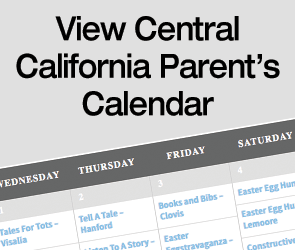What Inquiring Parents of Teens Want to Know

by Christa Melnyk Hines
From pandemic concerns to wise decision-making, we turned to experts for answers to parents of teens most pressing questions.
Living in a Pandemic World
How do I support my teen who is anxious and worried that their senior year will be negatively impacted by a possible resurgence of the pandemic?
Reducing uncertainty is one of the most effective techniques we can use to manage anxiety. We can do this by asking questions and educating ourselves. For teens worried about how their senior year may be impacted by COVID-19:
• Stay up to date on what is happening locally and with your school.
• Educate yourself and use accurate and appropriate sources of information (school websites) in a balanced way.
• Avoid spending large amounts of time on social media and other forms of media, which can exacerbate anxiety.
• Avoid planning for the worst, which is just another way to focus on uncertainty.
• Focus on what you know and what you can do.
Realize that no matter what happens, you will graduate and many people are working to adapt activities and schedules as necessary to keep everyone as safe and healthy as possible.
COVID-19 should not be allowed to define our teens’ lives. Help your teen find balance and joy each day in their activities. Encourage them to get outside, connect with peers, stay busy with hobbies, find a new hobby, or start a fun project. All of these kinds of activities will decrease anxiety and increase positive emotions.
–Stephen Lassen, Ph.D., pediatric psychologist
How do I get my teen to unplug from Zoom chats and other technology when it’s the only way to socialize?
This is a great time to engage your teen in family social activities. You may choose how often family activities will occur and your teen can help decide the rest of the details. Also consider creating realistic limits for live, interactive screen time such as Zoom chats to promote safe socializing. Giving your teen more freedom while supervised in the home may prevent socializing in an unsafe manner.
Consider creating separate limits for other technology such as social media, video games, and television. Ask them how much time they want, compromise, and hold them accountable! Help your teen create a list of non-screen time activities to remind them of alternative ways to fill their time.
—Simone Moody, Ph.D., child & adolescent psychologist
Respecting Others
How can I make sure I’m teaching my sons to respect women and minorities?
The most important way to teach our children to respect women and minorities is through modeling this respect in our own words and behavior. This includes demonstrating respect consistently, but also includes labeling disrespect or prejudice when you observe it in daily life, current events, and entertainment.
Biases are ingrained in our culture and therefore can be invisible, unless specifically called out. Be aware and label your own bias as well. Are you more nervous if the person walking down the street behind you is an ethnic minority? Consider why this might be and work to challenge these reactions.
—Sara Gould, Ph.D., child & adolescent psychologist
Problem Solving Techniques
How can I help my teen better manage stress?
Help your teen see how challenges can be opportunities for growth and personal enhancement, not simply something to endure or try to escape. Encourage flexible thinking by asking them to consider questions like: “What are some other reasons why this happened? or “How can this benefit you?”
As teens begin to think more accurately and flexibly about situations they encounter, they will experience less stress. The situations don’t change, but how they respond to them will help decrease the subjective experience of stress.
Physical activity, good nutrition, and high quality sleep are particularly important to help teens more effectively manage challenging situations. Other ideas to help your teen maintain good balance in their lives:
• Stay connected to peers who are a positive influence.
• Maintain a regular daily schedule.
• Focus on accomplishing developmentally appropriate tasks such as getting a job and getting their driver’s license.
• Engage in proactive and healthy habits.
• As a parent, model healthy habits around how you manage stress.
Stress can be detrimental to our health at high and consistent levels, but it can also lead to strength and growth in our lives if we let it work for our benefit. The old English saying, “A smooth sea does not make a skilled mariner,” teaches that lives devoid of stress do not make strong, capable human beings.
—Stephen Lassen, Ph.D., pediatric psychologist
How do I create a safe space for my teen to express his or her feelings?
One of the best ways to help you connect with your teenager and make them feel safe and understood is to carefully listen and validate their feelings when they talk to you. So often when teenagers come to us, we as parents are quick to offer advice and tell them all the reasons why their thinking isn’t correct. Validating your teen’s feelings has nothing to do with whether their feelings are right or wrong or if you agree with them. It’s just understanding and showing them, “okay, I get it.”
By listening, validating, and withholding advice unless requested, your teen will learn to trust their own feelings and emotions, which helps them learn to problem-solve and connect to that inner wisdom to make decisions.
—Julie Gettings MSW-LSCSW, professional therapist
The Developing Teen Brain
Why does my teen make unwise choices?
Teens often make unwise choices because of adolescent cognitive development. Teens’ brains aren’t done yet. Independence is growing rapidly, but the brain’s control centers are not yet fully online. Teens are often impulsive, and short-term gain is a greater influence than long-term gain. Decision-making skills and abstract thinking skills are still developing and are inconsistent and easily overridden by emotion. That’s why parenting a teen is so tricky.
The goal is to allow as much independence as your teen has demonstrated they can manage responsibly—and decrease independence if your teen’s behavior shows they aren’t quite ready. All teens develop differently so this may result in you setting different limits and expectations than your teen’s friends have.
—Sara Gould, Ph.D., child & adolescent psychologist
Central California Parent is the #1 FREE parenting resource for Central Valley families.
Stay connected with Central California Parent throughout the month!
• Like Us on Facebook
• Follow Us on Instagram
• Follow Us on Pinterest
• Follow Us on Twitter
• Subscribe For our Family E-Newsletter
• Read Our Digital Edition
• Enter for our FREE Giveaways








